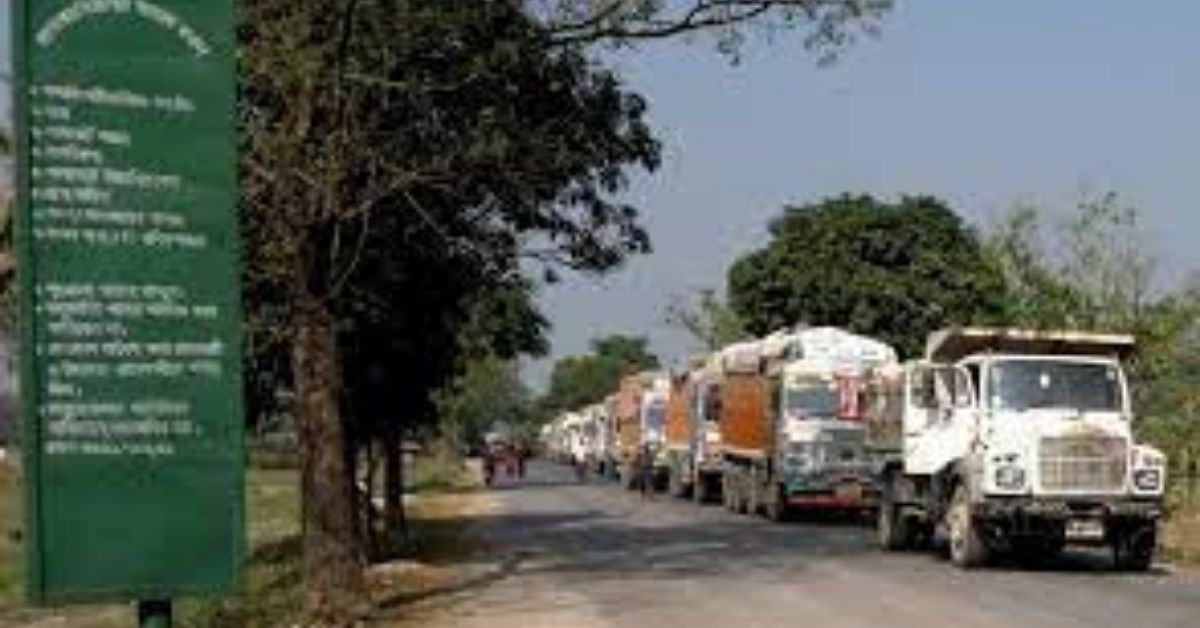The report by ICRIER notes that presently very few women ‘users’, whether as traders, transporters or logistics operators, actually visit the land ports for trade related activities.
India’s land ports operate as key gateways for trade with neighbouring countries.
The role of land ports in facilitating trade, particularly on India’s eastern borders, is set to further increase with the implementation of several regional agreements such as the proposed India-Bangladesh Comprehensive Economic Partnership Agreement (CEPA), the Bangladesh, Bhutan, India and Nepal (BBIN) Motor Vehicles Agreement and the BIMSTEC Master Plan for Transport Connectivity.
However, the impediments faced by women at the land borders are a major reason for the low level of female participation in regional trade.
To facilitate the participation of women in international trade, the report “Gender Mainstreaming at India’s Land Ports” released by the Indian Council for Research on International Economic Relations (ICRIER) presents an action plan for making the land ports gender responsive listing the enabling measures needed both at the land ports as well as the overall ecosystem.
Speaking at the release event of the report the Chairman of the Land Ports Authority of India (LPAI) Aditya Mishra hoped that gender mainstreaming initiatives at the land ports will become a model for all ports in India. Mr Mishra greatly appreciated the study conducted by the Indian Council for International Economic Relations (ICRIER) and stated that LPAI would take on board the recommendations in both word and spirit, especially with regard to greater digitisation and mechanisation of cargo processing.
Rama Mathew, Member, Central Board of Indirect Taxes and Customs (CBIC) addressed the event and said that the report would be of great interest to the National Committee on Trade Facilitation (NCTF) in the context of Action Point # 27 in the National Trade Facilitation Action Plan (NTFAP) which specifically calls for the promotion of “gender inclusiveness in trade”.
Deepak Mishra, Director & Chief Executive ICRIER, informed the audience that gender is a cross cutting theme across its research thrust areas and that it was a matter of great pride for ICRIER that this study conducted as part of the gender and trade program was conducted by an all women team of researchers.
Nisha Taneja, Lead for trade, investment and external relations at ICRIER, stated that in pursuance of the emphasis on “women-led development” both at the national level as well as in the agenda of international forums such as the G20, the study is one of the first attempts in India to develop a comprehensive template for a gender lens assessment of hard and soft infrastructure at land ports, as a crucial input into incorporating a gender mainstreaming strategy in trade facilitation measures.
The report by ICRIER notes that presently very few women ‘users’, whether as traders, transporters or logistics operators, actually visit the land ports for trade related activities. The procedures and processes for cargo clearance are primarily handled for women traders by male intermediaries and for logistics operators by male colleagues. Similarly, besides the few women security forces’ personnel on duty, a very small percentage of the staff deployed by the port management and operating agencies – ‘providers’ – are women. Hard and soft infrastructure gaps, safety related challenges and existing socio-cultural barriers combine to constrain women and perpetuate a challenging environment for them at the land ports in India.
To address the infrastructure gaps, the study has developed a “Model Review Checklist” as a benchmarking tool to measure the availability of gender responsive infrastructure. The Model Review Checklist for gender responsive infrastructure consists of 57 elements across six categories: information and access to port, basic utilities, public facilities, safety set-up, cargo handling, and digitisation. The report points out that both the availability and quality of infrastructure at the land ports is important. Moderating the panel discussion on the key findings and insights, Christina Struller, Vice President, Corporate Affairs (ISMEA), UPS, described the report as extremely insightful and impactful. The panellists included Sharmila H. Amin, Managing Director, Bertling Logistics India Pvt. Ltd., Sudip Kr Dey, President, Calcutta Customs House Agents’ Association, Sushma Morthania, Founder & Director General, India SME Forum, Rajan Sudesh Ratna, Deputy Head, UNESCAP South and South-West Asia Office, and Francesco Tornieri, Principal Social Development Specialist, Asian Development Bank (ADB).







